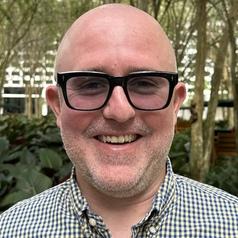
Matthew DeGennaro
Associate Professor of Biological Sciences, Florida International University
Chemosensation underlies many insect behaviors including host detection and oviposition site selection. I developed genome editing tools in Aedes aegypti for the comprehensive genetic analysis of mosquito behavior. Using this approach, I have provided key insights into DEET repellency, oviposition behavior, hygrosensation, hormonal physiology, reproduction, and how mosquitoes find their human and plant hosts. My work has highlighted the role of acid volatiles associated with human odor in mosquito host detection. Microbiome-based vector control is my current focus. Understanding the composition and odor profiles of the microbial communities associated with human skin and mosquito oviposition sites offers the promise to disrupt vector behavior to reduce disease risk.
Less ![]()
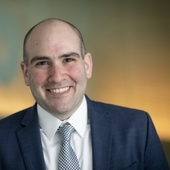

Matthew Eshbaugh-Soha
Matthew Eshbaugh-Soha (Texas A&M, PhD) is Professor of Political Science at the University of North Texas. His research focuses on American political institutions, specifically the presidency and mass media, and public policy. He is the author of nearly three dozen scholarly articles and three books: The President’s Speeches: Beyond “Going Public” (Lynne Rienner), Breaking through the Noise: Presidential Leadership, Public Opinion, and the News Media, coauthored with Jeffrey S. Peake (Stanford University Press), and The President and the Supreme Court: Going Public on Judicial Decisions from Washington to Trump, co-authored with Paul M. Collins, Jr (Cambridge University Press). His forthcoming book (Routledge) examines the causes and consequences of presidential rhetoric on immigration.
Less ![]()
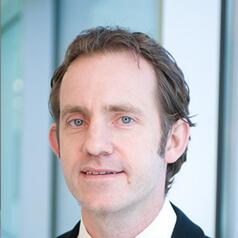
Matthew Farrer
Professor of Neurology, University of Florida
My career objective is to provide molecular targets, tools and research insights in neurologic and age-related neurodegenerative disorders to encourage major pharmaceutical investment. For the past 25 years my research has been largely focused on neurogenetics and molecular neuroscience modeling of Parkinson’s disease and atypical parkinsonism. My mission it to help molecularly diagnoses and develop disease-modifying therapeutics aimed at neuroprotection (precision medicine). Ongoing projects include the genetic analysis of patient DNA samples from pedigrees and population isolates by high-throughput and Sanger sequencing. In parallel, my team seeks to characterize novel genes and mutations we discover in model systems. I primarily focus on subtle changes to the mouse genome through cre-loxP conditional recombineering (floxed mice). I prefer to keep experiments as physiologic as possible, as true to the human condition. Core experimental techniques include electrophysiology (mostly voltammetry), microdialysis, protein biochemistry, confocal imaging, behavioral assays and neuropharmacology. Ongoing studies involve mature primary cell cultures, brain slice and whole animal work.
Less ![]()
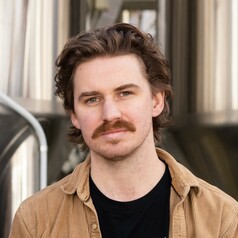
Matthew Fielding
Research Associate / Teaching Fellow, ARC Centre of Excellence for Australian Biodiversity and Heritage (CABAH), University of Tasmania
Less ![]()

Matthew Firth
Associate lecturer, Flinders University
Matthew Firth is an Associate Lecturer at Flinders University. His research focuses on historiography, cultural memory, and the transmission of historical narrative across time and place. He has particular specialisations in the history and literature of early medieval England and Scandinavia.
Less ![]()

Matthew Fischer-Post
Research Fellow, Harvard Kennedy School
Matthew Fisher-Post is a Research Fellow working with Anders Jensen on progressivity and development in the long-run.
Matthew has worked at the United Nations in Rome and Mexico City, the Inter-American Development Bank in Panama, Médecins du Monde in Buenos Aires, and NORC at the University of Chicago.
He earned a BA from Dartmouth College, an MPA from Cornell University, and is a Fulbright laureate and PhD candidate at the Paris School of Economics.
Less ![]()
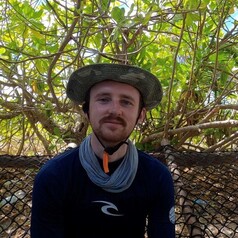
Matthew Floyd
PhD Candidate, Marine Ecology, Northumbria University, Newcastle
I am a marine ecologist with a background in functional and community ecology, species range shifts, and tropical/ subtropical coral reefs. My PhD research explores the ecology and value of Maldivian seagrass habitats using remote sensing and field-based methods.
Less ![]()
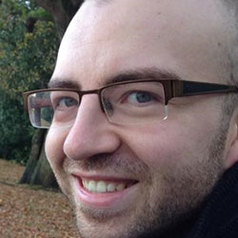
Matthew Freeman
Senior Lecturer in Media and Communication, Bath Spa University
Dr Matthew Freeman is Senior Lecturer in Media and Communication at Bath Spa University, where he is also Director of the Media Convergence Research Centre. He completed his PhD in Culture, Film and Media at the University of Nottingham and holds an MA and a BA (Hons) in Film and Television Studies, both from the University of Warwick. Before taking up his post at Bath Spa University in 2015, he taught at the University of Nottingham and in the School of Media at Birmingham City University.
His research concentrates on cultures of production across the borders of media and history, writing extensively on the industrial history of transmedia storytelling. He has also published on such topics as media branding, convergence cultures, and methodological approaches to media industry studies.
Matthew is the author of Historicizing Transmedia Storytelling: Early Twentieth-Century Transmedia Story Worlds (Routledge, 2017), Industrial Approaches to Media: A Methodological Gateway to Industry Studies (Palgrave Macmillan, 2016), and the co-author (with Carlos A. Scolari and Paolo Bertetti) of Transmedia Archaeology: Storytelling in the Borderlines of Science Fiction, Comics and Pulp Magazines (Palgrave Pivot, 2014). His research can also be found in journals such as The International Journal of Cultural Studies, Historical Journal of Film, Radio and Television, and International Journal of Communication.
Less ![]()
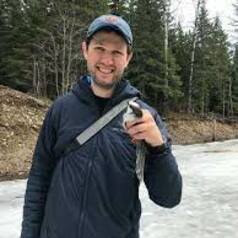
Matthew Fuirst
Instructor, Integrative Biology, University of Guelph
I am an Associate Wildlife Biologist and lecturer in the Department of Integrative Biology at the University of Guelph. I conducted all my PhD field work in Algonquin Provincial Park, Ontario.
Less ![]()
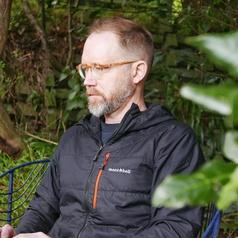
Matthew Gerstenberger
Seismologist, GNS Science
Matthew is a seismologist who focuses on earthquake forecasting and seismic hazard modelling.
Matthew leads the New Zealand National Seismic Hazard Model (NSHM) - a scientific model that uses geodetic modelling and historical earthquake data to estimate the likelihood and strength of earthquake shaking in different parts of New Zealand. The NSHM is widely used by government and industry to estimate the likely impact of earthquakes on the country’s land, buildings and infrastructure.
In 2022 a significant revision of the model was released. This was a three-year project which helps to improve our understanding of risks to safety, security, and the economy from seismic events. Working in partnership with central and local government, engineers, universities and other Crown Research Institutes, and with input from international scientists and expert end users, the revision will lead to better management of, and responses to, natural hazard events, as well as influencing and improving infrastructure and building code legislation and requirements. This work will have ultimate benefits to the people of New Zealand.
During seismic events, he works alongside GNS Science’s earthquake forecasting team to provide forecasting data and probabilistic modelling to assist in the event response and recovery phases.
Before joining GNS, Matt worked on a range of seismology projects around the world, creating better understanding and quantification of uncertainties, developing testable models, methods for propagating uncertainties and forecasting and hazard models. He developed an aftershock hazard forecasting tool, which has been extensively used by the US Geological Survey and featured prominently in New Zealand’s response to the Canterbury earthquakes.
Matthew is a member of the New Zealand Society for Earthquake Engineering and an Associate Editor for the Bulletin of the Seismological Society of America.
Less ![]()
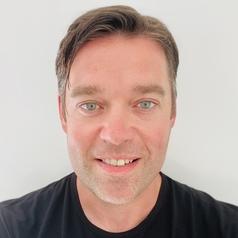
Matthew Gilmour
Research Scientist; Director, Food Safety Research Network, Quadram Institute
Dr Matthew Gilmour leads the ‘Listeria and other Invasive Pathogens’ research group and directs the Food Safety Research Network at the Quadram Institute in Norwich, England. Matthew is also co-lead of Quadram’s ‘Microbes and Food Safety’ strategic programme which has a focus on translating the Institute’s key microbiology findings and genomic technologies with partners in food industry and government.
Matthew was previously based in Canada where his group was a pioneer in using bacterial genomics to study outbreaks, including the large Canadian listeriosis outbreak in 2008 and then the Haitian cholera outbreak of 2010. With this experience in public health, from 2015 to 2020 Matthew was the Scientific Director of Canada’s National Microbiology Laboratory. At the NML, Matthew had significant leadership roles for pandemic preparedness and response, as he was also co-chair of the Canadian Public Health Laboratory Network and the Global Health Security Action Group Laboratory Network.
Matthew has also clinical laboratory expertise, as he previously served as a Clinical Microbiologist at the Health Sciences Centre in Winnipeg, where he was the laboratory lead for Infection Prevention & Control, and he remains interested in the evolution and transmissibility of antibiotic resistant organisms.
As a culmination of these experiences, Matthew is also now Director of the Food Safety Research Network, based at the Quadram Institute. This network has the goal of brokering collaborative research projects between food businesses and academic research groups that will make UK foods safer from microbial risks.
Less ![]()
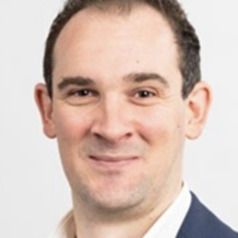
Matthew Griffith
Associate Professor and ARC Future Fellow and Director, UniSA Microscopy and Microanalysis Facilities, University of South Australia
A/Prof Matthew Griffith is an ARC Future Fellow and Research Leader within UniSA’s Future Industries Institute, where he focuses on developing innovative light-activated materials that solve some of the biggest challenges in the areas of Health and Energy. He is also the host of the Royal Australian Chemical Institute's official podcast, Chemically Speaking, and the Director for the Microscopy Australia facilities at UniSA.
Less ![]()

Matthew Grubits
Historian, Charles Sturt University
Dr. Matthew Grubits is an Adjunct Research Associate with the School of Theology, Charles Sturt University. He holds a PhD in Religious Studies, specialising in the history of Christianity in Australia and Britain in the nineteenth century. Matthew is the current Australian Religious History Fellow with the State Library of New South Wales.
Less ![]()
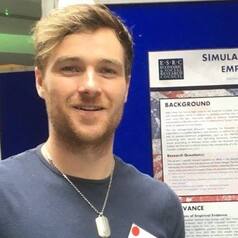
Matthew Hall3
Lecturer in Sociology and Criminology, Centre for Research on Ageing and Generations, Department of Sociology., University of Surrey
Less ![]()
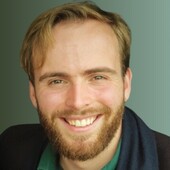
Matthew Hall4
Deputy Business & Economy Editor
Matthew is passionate about making business and finance news more meaningful, relevant and approachable for a greater number of Australians. He holds both a Bachelor of Commerce (Finance, Management) and Master of Journalism from the University of Melbourne. Before joining The Conversation, Matthew produced financial journalism covering a range of sectors for market intelligence firm Field Research.
Less ![]()
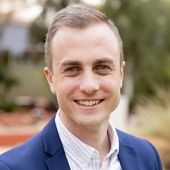
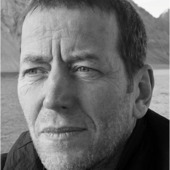
Matthew Heard
Professor of Ecology, Head of Environmental Research and Data, The National Trust
Less ![]()
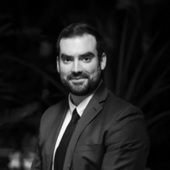
Matthew Hefler
Senior Research Fellow, Center for Statecraft and Strategic Communication, Stockholm School of Economics
Less ![]()
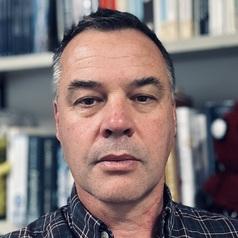
Matthew Henry
Associate Professor in Planning, Massey University
I have a PhD in human geography from the University of Auckland, as well as an undergraduate qualification in Resource and Environmental Planning, and MPhil in geography, both from Massey University.
Less ![]()
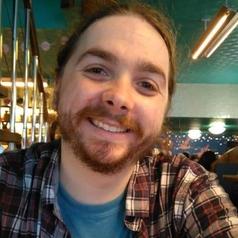
Matthew Higgins
University of Portsmouth
I’m a lecturer at the University of Portsmouth, teaching video game design and development. I specialise in narrative and cognitive psychology and bringing those to storytelling and game design.
Less ![]()
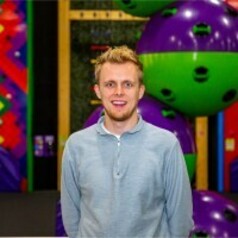
Matthew Hutchinson
Lecturer in Sport Business Management, Keele University
Matthew joined Keele University as a lecturer in Sport Business Management in 2023.
Previously to working at Keele University, Matthew worked at Manchester Metropolitan University as a lecturer in Sport Marketing and Policy.
He has also worked in several roles outside of academia, including at a sports insights marketing agency, football club charities and women’s football clubs.
Less ![]()
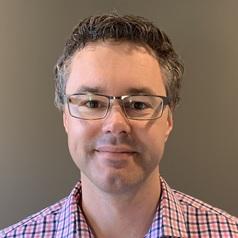
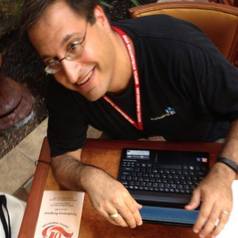
Matthew Kirschenbaum
Professor of English, University of Maryland
Matthew G. Kirschenbaum is Professor in the Department of English at the University of Maryland and Director of the Graduate Certificate in Digital Studies. He is also an affiliated faculty member with the College of Information Studies at Maryland, and a member of the teaching faculty at the University of Virginia’s Rare Book School. He served previously as an Associate Director of the Maryland Institute for Technology in the Humanities (MITH) for over a decade. He is a 2011 Guggenheim Fellow.
His most recent book, Track Changes: A Literary History of Word Processing, was published by Harvard University Press’s Belknap Press in 2016; with Pat Harrigan, he also co-edited the collection Zones of Control: Perspectives on Wargaming from the MIT Press (2016). His public-facing writing has appeared in the Chronicle of Higher Education, Slate, LA Review of Books, Paris Review Daily, War on the Rocks, and The Conversation. His research has been covered by the New York Times, The Atlantic, The New Republic, The Guardian, National Public Radio, Boing Boing, and WIRED, among many other outlets. In 2016 he delivered the A.S.W. Rosenbach Lectures in Bibliography, a written version of which are under contract to the University of Pennsylvania Press as Bitstreams: The Future of Digital Literary Heritage.
Kirschenbaum’s current interests include the history of writing and authorship, textual and bibliographical studies, serious games, and military media and technologies. His first book, Mechanisms: New Media and the Forensic Imagination (MIT Press, 2008) won multiple prizes, including the 16th annual Prize for a First Book from the Modern Language Association. He was also the lead author on the Council on Library and Information Resources report Digital Forensics and Born-Digital Content for Cultural Heritage Collections (2010), recognized with a commendation from the Society of American Archivists. See mkirschenbaum.net or follow him on Twitter as @mkirschenbaum for more.
Less ![]()
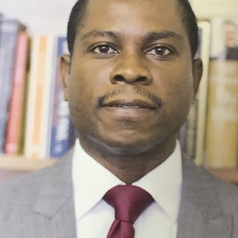
Matthew Kofi Ocran
Appointed as an associate professor of economics in 2012, and a professor of economics in 2014. Joined UWC in April 2015 from NMMU. NRF Rated as an established researcher in 2012 for the 6-year cycle, 2012-2018.
Less ![]()
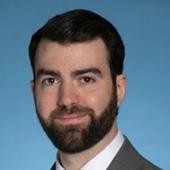
Matthew Kriner
Director of Strategy, Partnerships and Intelligence at the Center on Terrorism, Extremism, and Counterterrorism, Middlebury Institute of International Studies
Less ![]()
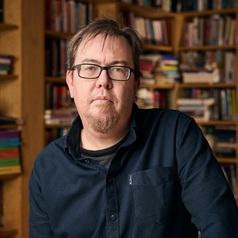
Matthew Lamb
Honorary Research Fellow, School of Historical and Philosophical Inquiry, The University of Queensland., The University of Queensland
Less ![]()
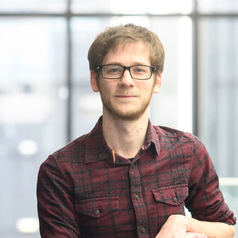
Matthew Leggatt
Senior Lecturer, Department of English and Creative Writing, University of Winchester
Matthew Leggatt is Senior Lecturer in English and American Literature. He is author of the monograph Cultural and Political Nostalgia in the Age of Terror (Routledge, 2018) and editor of the collection Was it Yesterday? Nostalgia in Contemporary Film and Television (SUNY Press, 2022). He has also published a number of journal articles and book chapters and is the editor of the forthcoming collection Wastelands and Wonderlands: Essays on Utopian and Dystopian Film and Literature (SUNY Press, 2025) and Play in Utopian and Dystopian Fiction (Liverpool University Press, 2026). Matthew teaches primarily in the fields of 20th and 21st century culture, specialising in popular American literature, film, and television. He received his PhD from the University of Southampton in 2013 and has experience teaching English as a foreign language and English for Academic Purposes at the University of Southampton before he joined Winchester.
Less ![]()
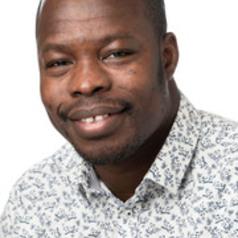
Matthew Mabefam
Lecturer, Development Studies, The University of Melbourne
Matthew Mabefam is a lecturer in development studies at the School of Social and Political Sciences. He completed his PhD in anthropology and development studies at the University of Melbourne.
He also holds an M.Phil. and BA (Hons) degrees, both from the University of Ghana. Matthew's research focuses on the politics of international development, inequality, religion and neoliberalism, political economy, migration and wellbeing. Overall, his research examines mainstream development models and their applicability in developing contexts and highlights some of the emerging tensions. In short, his work contributes to the decolonisation of development epistemes, knowledge and practices. Matthew's regional focus is Africa (Ghana) and African diaspora.
Increasing public engagement with development issues and displaced people's wellbeing is at the core of the global agenda. Matthew is highly engaged in public and scholarly activities through sharing his research outputs in media, seminars, conferences and academic publications. Highlights include his weekly appearances on Africa Media Australia as a panellist.
Matthew is also passionate about community development. As a result, he initiates and participates in community-led activities, engages in consultancies, mobilises resources and provides mentoring opportunities to school children of low socio-economic backgrounds. He has prior working experience with grassroots NGOs in Ghana.
Less ![]()
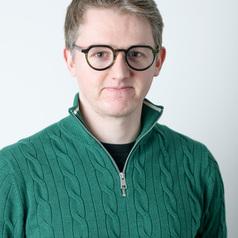
Matthew Matthew Wynn
Lecturer in Digital Health and Society, School of Health & Society, University of Salford
Matthew Wynn is a lecturer in Digital Health and Society at the University of Salford. With a background in nursing, Matthew specialises in tissue viability and infection control. He has extensive experience working within the UK National Health Service, the British Armed Forces, and has served as an expert witness in civil cases related to nursing care. His clinical experience has given him a deep understanding of wound care and infection control, which are crucial for patient safety and effective healthcare.
Matthew's research focuses on the digitalisation of nursing, particularly how digital tools can improve clinical practices related to wound care and infection control. His work aims to enhance healthcare delivery and patient outcomes through the integration of technology. As an educator, Matthew is dedicated to preparing future healthcare professionals to excel in a digitalised healthcare environment.
Less ![]()
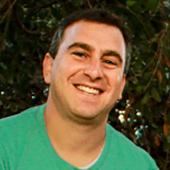
Matthew Mazloff
Researcher, Scripps Institution of Oceanography, University of California, San Diego
Less ![]()
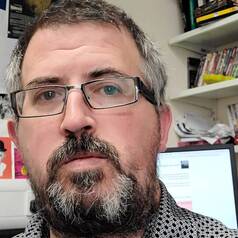
Matthew Melia
Senior Lecturer and Course leader of the Humanities Foundation Degree, Kingston University
I graduated in 2001 at the University of Aberdeen (Joint MA Hons English-Lit / History of Art) and was awarded my PhD from Kingston University ('Architecture and Cruelty in the Writings of Antonin Artaud, Samuel Beckett and Jean Genet') in 2007.
I currently teach across film, media and English Literature and I am the Course leader for the Humanities Foundation degree
My current and ongoing research concentrates on the work of both Stanley Kubrick and Ken Russell. I co-edited The Jaws Book: New Perspectives on the classic Summer Blockbuster (Bloomsbury); Anthony Burgess, Stanley Kubrick and A Clockwork Orange (Palgrave, 2023 ); 'Fifty Years of A Clockwork Orange' (Special edition of Historical Journal of Film Radio and Television) and edited ReFocus: The Films of Ken Russell (EUP, 2023 ). I am currently working on a monograph about Ken Russell's 1986 film Gothic. Forthcoming publications include an edited collection for Bloomsbury, The Jurassic Park Book (2023), a special edition of the journal Cinergie Il Cine e le Altre Arti, 'Franchising Jurassic Park' (2023) .
My research (and teaching) is archive focused and I have a particular research interest in the both study of archives themselves and in the phenomena of the unmade and abandoned project. I am co-convener of the Special Interest Group (SIG) 'Archives and Archival Methods' (British Association of Film, Television and Screen Studies).
I have taught modules on British cinema and cult and transgressive film and literature and am interested in the tension between analogue and digital media as well as dead technology.
Less ![]()
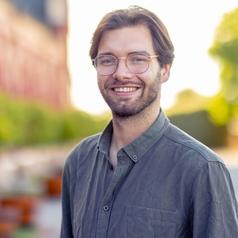
Matthew Miles
Postdoctoral Researcher in Astrophysics, Swinburne University of Technology
I graduated Monash University with a Bachelor of Aerospace Engineering (Honours) and a Bachelor of Science. Following this, I went on to complete a PhD in Astrophysics at Swinburne University of Technology.
Since then, I've been working as a postdoctoral researcher for OzGrav and Swinburne University. My scientific background specialises in pulsar timing array science. This science uses pulsars, regularly rotating neutron stars that hit the Earth with beams of radio waves, as very precise natural clocks. By doing this, we can look for distinct patterns in how space and time are changing across the entire galaxy - in effect creating a cosmic scale gravitational wave detector. The gravitational waves that this kind of detector would be sensitive to are those emitted by inspiralling supermassive black holes, the behemoths of our Universe that reside at the centres of galaxies and are billions of times heavier than our Sun.
Less ![]()
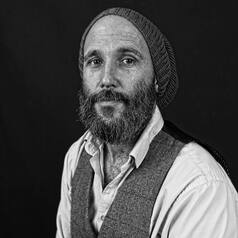
Matthew Noone
Course Director of World Music, University of Limerick
Matthew Noone is an Australian-Irish ex-indie rocker, improviser, composer, artist-scholar and performer of the 25 stringed Indian sarode. After beginning his musical career as a guitarist and drummer in Brisbane in the mid 90s, Matthew fell in love with the sarode during a trip to India in 2003. He has studied North Indian Classical music for two decades with Sougata Roy Chowdhury in Kolkata and with UK based sarodiya, K. Sridhar. He performs Indian classical music across the globe and composes in a diverse range of disciplines ranging from Irish traditional music, free improvisation and contemporary electroacoustic music.
Matthew is also an Irish Research Council scholar and was awarded a PhD for his work exploring the performance of Irish music and completed a postdoctoral fellowship investigating electroacoustic music improvisation. His research interests include cultural hybridity, phenomenology, consciousness and deep ecology. He is the Course Director of the BA in World Music at the Irish World Academy of Music and Dance at the University of Limerick.
Less ![]()
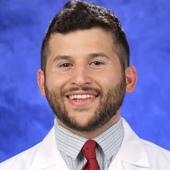
- Market Data




















